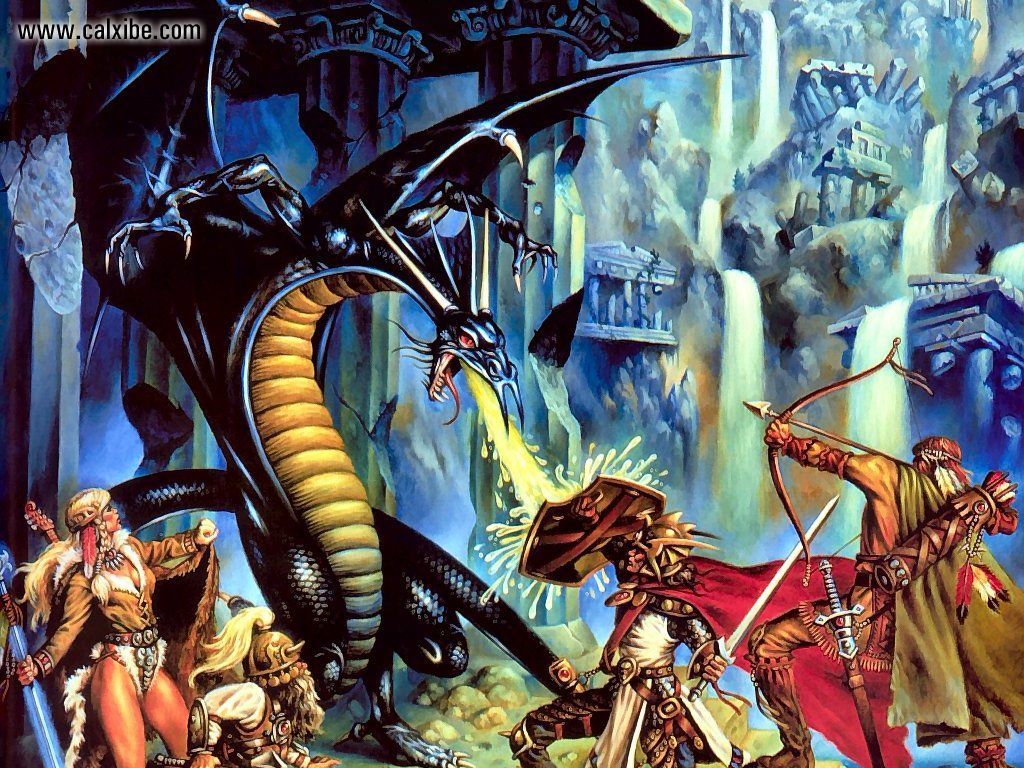
This week I had two conversations about the same thing with two completely different people. The question dealt with how players should feel when confronted with a situation. One conversation dealt with the death of a PC. The villain kills (or does something really bad to) a PC and escapes, saddened by their fellow PC’s death, the party recruits a new member and goes after the villain. The other conversation dealt with an author who had written a story and had the PCs evolve through that story. She became frustrated because the PCs kept getting off-track because they would not do what she wanted them to do.
Although both situations have something in common, both expect and assume for the PCs will behave or think a certain way when faced with a situation. That is the BIGGEST mistake you can do.
I can talk… I’ve done this for YEARS. Trying to force a group into what I wanted them to do. I’m guilty. Many times. I’m also guilty of doing it as a player a few times. Take a plot and run through left field at top speed.
Let me take you back to a time when I was a terrible GM and an inexperienced teen wanting to play and run adventures. I’m talking the EARLY 1990s here. I wouldn’t write in those days and what I did write what a flaming bag of… magic missiles. Sure I could improvise or add and modify existing stuff but coming up with some good stuff from scratch… Yeeach. No.
I tried to force plot-hook a party through the Dragonlance series… they thought that leaving the poor people behind them was a great idea because it gave the villains something to munch on while they escaped. In spite of my incessant prodding of Guys, this is HEROIC fantasy. You are supposed to be heroes! and getting Screw the heroism! I need gold to buy my full plate +3 and these refugees have nothing to pay us for our troubles! Then I would ask (aka beg) for them to try and follow the plot, but all they wanted was gold.
So I would come up with different story twists to get their character interested: a peasant promised to tell them where he knew of a secret stash of elven gold (the poor man was beaten by hobgoblins and forced to reveal what he knew before they would heal him). This woman promised them a platinum bracelet when they would reach safety (a few pickpocket rolls later, she had nothing to offer them).
Obviously it did not work as I wanted. I came up with a number of mini encounters designed to try and get the PCs to care for anything. While some did take a liking to some NPCs, overall they only wanted to take their girlfriends and leave. I tried side-quests, massive slaughters of civilians, which they liked because it meant they had to babysit fewer “dead weights”.
I was completely pissed off. Here I had a great story for them to play, a story that would elevate their characters from simple sellsword to the status of heroes (which they asked me to do). And all they could do was to see how bad they could screw the story up. Let the refugees die at the hands of the Dragonlords. Stealing whatever valuable they could find among these poor people. Threaten them to extort money. Try to flee as fast as they could to avoid taking any damage. I would generally call the games shorts because I couldn’t take anymore.
Whatever I would think of, it became their game to destroy whatever plan I have. Seeing me get angry or completely discouraged was the highlight of the game for them.
After a week or two of trying and thinking of what I now think were cleaver idea to get the plot back on-track and the PCs on-board. Mini-side-quests, encounters and adventures to add to the campaign, a lot of fun stuff but still they just wouldn’t take the hint.
You know what I realized since then?
It does not work.
If they don’t want what you offer, then it won’t work.
All you end up with is an angry GM, frustrated players, and a bad taste in everyone’s mouth. Sure there might be laughs – frequently as the GMs groans as another one of his ploy fails. The GM feels his preparation time was wasted, the players that they constantly have to be railroaded into doing something their character has no intention of doing.
So what did I really do wrong? What caused that fail?
I tried to tell them how to feel.
I tried to tell them how to think.
Enough for now… More later.
JP

Hey JP is talking about me!
ReplyDeleteNow, my only exposure to DL is through the sourcebooks for D&D. Never read any of the novels. But it sounds like a classic disconnect between the game the DM wants and what the players want, and no attempt was made before or during to bridge that (huge) expectation gap. As you say, a common problem among new DMs, lack of communication.
ReplyDeleteThe "Dragonlance Classics" series of adventures were exactly what was in the novels. My players (and I) never read the novels, so it was cool. It really was a few guys who could never find it among themselves to help anyone or anything...
ReplyDeleteI won't be too critical because it helped to make me a ruthless, cruel and generally evil GM.